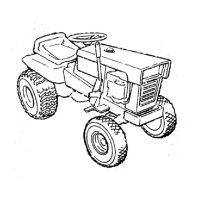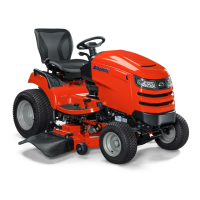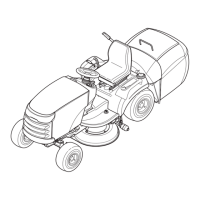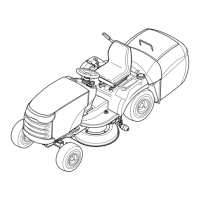D-11
Tips on dealing with clippings
Clippings are beneficial to your lawn. A common
misconception about clippings is that they automatically lead
to thatch—this is untrue. Short clippings actually contribute to
a healthy lawn because they:
• Reduce the evaporation of water from your lawn.
• Provide a cushioning layer to reduce lawn wear.
• Moderate soil temperature.
• Clippings act as a safe, non-polluting and inexpensive
fertilizer that nourishes your lawn. Freshly-cut grass blades
are 85% water and are a rich source of nitrogen which is
essential to lush growth. And one garbage bag of clippings
contains about 100 g (1/4 lb) of usable organic nitrogen.
Composting
The best way to recycle excess clippings and leave your lawn
looking immaculate is to collect them with an efficient
collection system and deposit them in a compost pile. A
compost pile is a collection of grass, leaves, and other organic
wastes which—when properly tended—decompose into an
odorless, topsoil material. This material, in turn, acts as an
inexpensive fertilizer for your lawn and garden.
